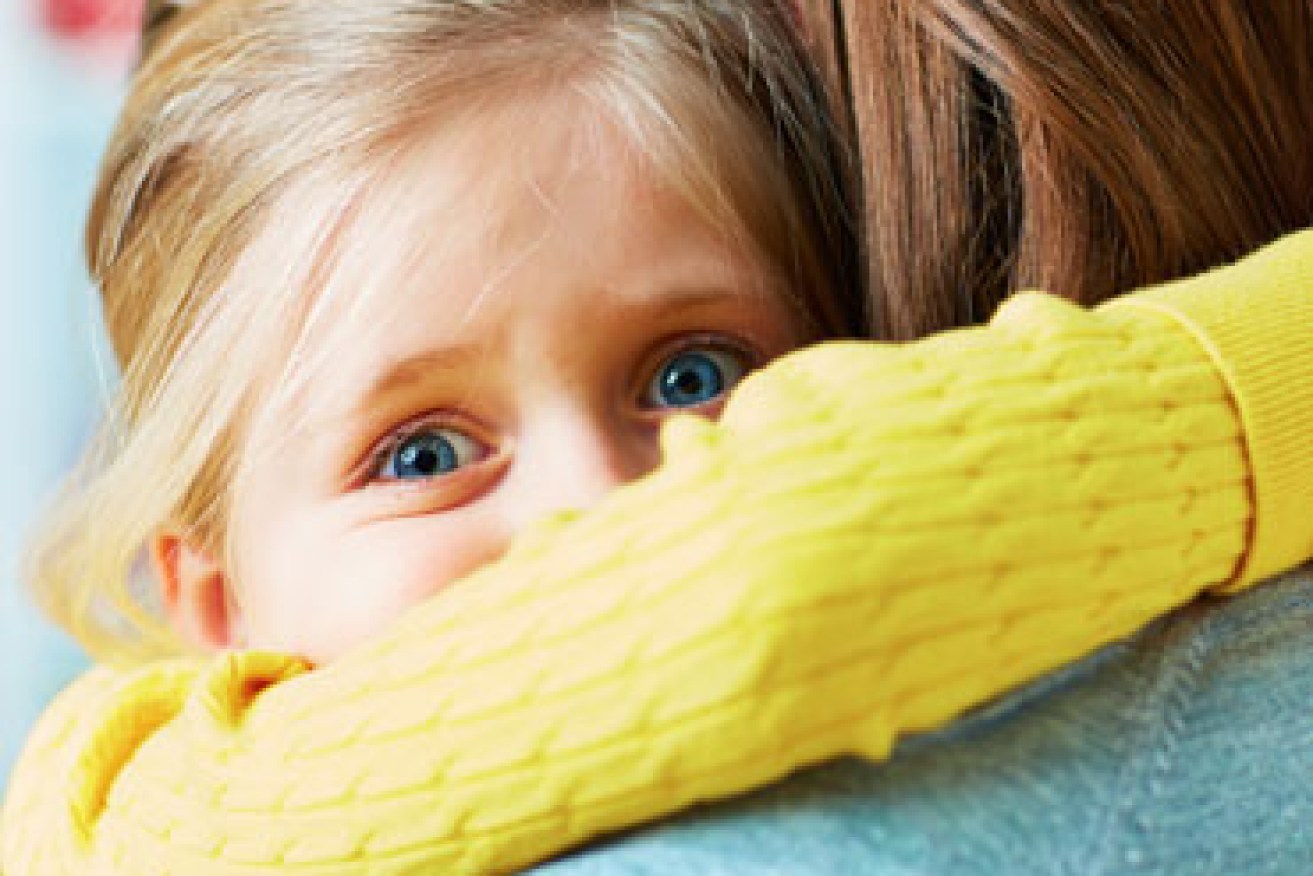Veteran newsreaders and hardened police have been moved to tears by the massacre of eight children in far north Queensland.
Far less emotionally sturdy children may be traumatised by this news, experts warn, which comes only three days after a shotgun-wielding criminal killed two hostages in Sydney.

Hug and reassure children distressed by bad news. Photo: Shutterstock
Growing Together child psychologist Dr Lauren Brabham told The New Daily that the “cluster” of traumatic events might “threaten their security and their sense of normality”.
• For the latest updates on the Cairns tragedy, click here
Adelaide-based child psychologist Dr Simon Beal told The New Daily he has treated as many as four children this week troubled by the news.
“It’s one of the problems of having so much news on TV – the kids are going to get exposed to it. But you can’t help that,” Dr Beal said.
Here is how the experts recommend you help your child deal with the events.
Media blackout for young children
Dr Lauren Brabham said very young minds process traumatic events very differently from adult minds, so those under the age of five should be shielded from the news in any way possible.
“That might mean parents switching off the TV, switching off the radio when little ones are around.”
But keeping the news from children over six can be difficult, Dr Brabham said, and so parents should make an effort to be their source of the news.
“They probably need some additional reassurance from their parents that they are safe and that events like what has happened occur very rarely and in isolation,” she said.
“Open up those channels of communication so that the information they are getting is from their parents and not from friends or other sources that might be as factual or accurate or age appropriate.”
Don’t go into too much detail
Let your child lead the discussion and only volunteer more information if they ask for it, Dr Brabham advised.
“Just give little bits. If children are wanting or needing more, they’ll come at you with more questions or they’ll give you signals that they want more,” she said.
“I think as adults sometimes we share too much with children when they’re quite comfortable with just small pieces of information.”
But do put what they know into context, she said. This is crucial because young children often do not understand time and distance, and may confuse or exaggerate what they see and hear.
“Things in the media replay over and over again, and in the child’s mind that might be like the event is happening over and over again,” Dr Brabham said.
“They don’t understand time and distance. They don’t understand that it’s probably happening quite far away from where they are.”
Don’t lie to them
Adelaide-based child psychologist Simon Beal told The New Daily that if a child has heard the news then a simple — and factual — explanation is necessary.
“If kids have inadvertently seen it on the news or heard about it, they need to have some kind of explanation or understanding of it, rather than sweeping it under the carpet or making something up,” Dr Beal said.
“It’s got to be factual. You can’t make up stories. But it’s got to be pitched at the right age.”
But he did encourage parents to attribute the tragedy to a mental illness or a drug affected individual or some other plausible explanation that distances the violent behaviour from the child’s everyday life.
“Blame it on a serious problem like that so that the kids can separate it out from their normal lives and put it in some context,” Dr Beal said.
Watch for changes in behaviour
Dr Nicole Sturla, a child and family psychologist at The R.E.A.D. Clinic, told The New Daily that parents should give their children lots of love, cuddles and reassurance and watch closely for changes in behaviour.
Short-term changes are normal, Dr Sturla said, but if this does not settle then seek professional help.
Behaviours to watch include sleeping and eating habits, headaches and stomach aches, and increased clinginess.









